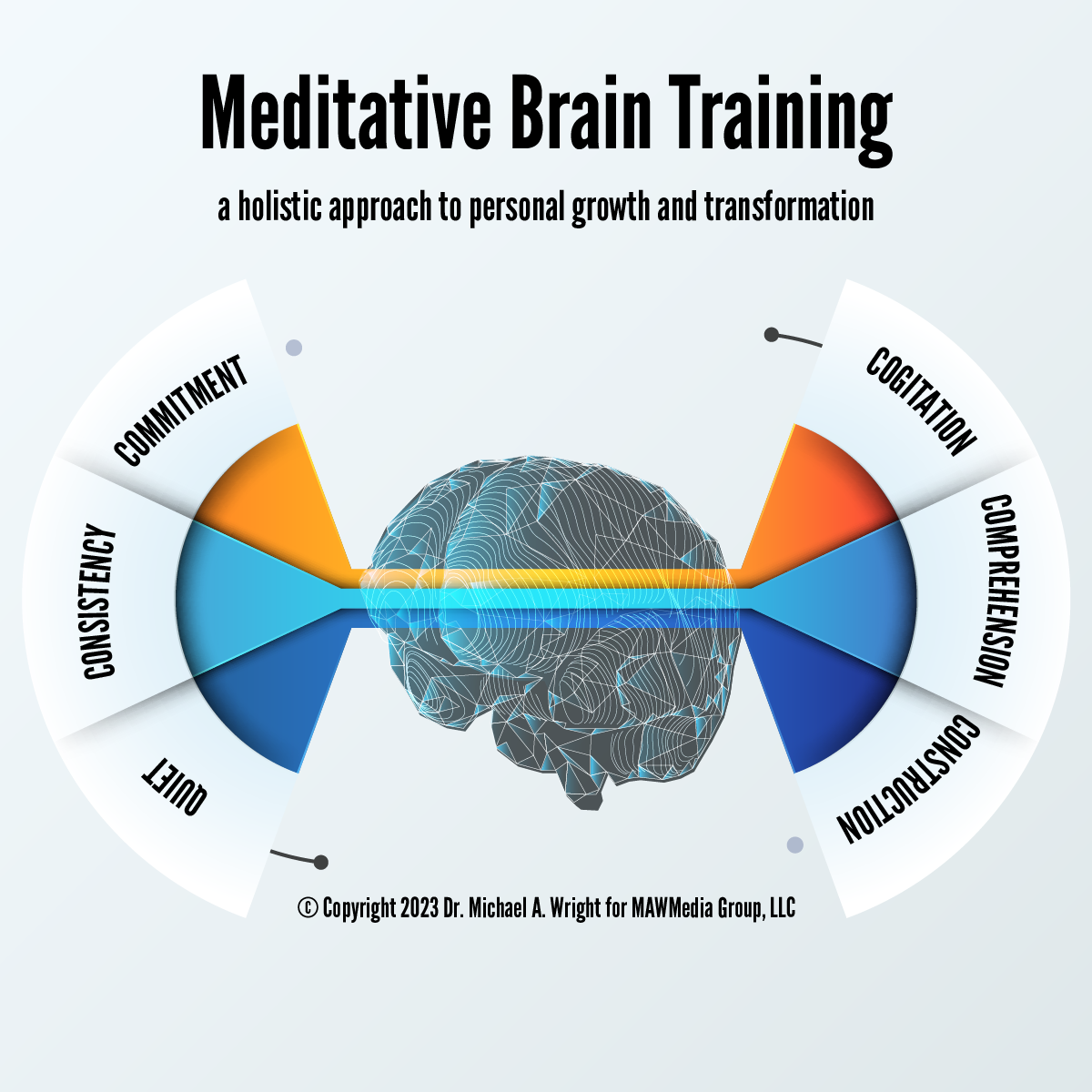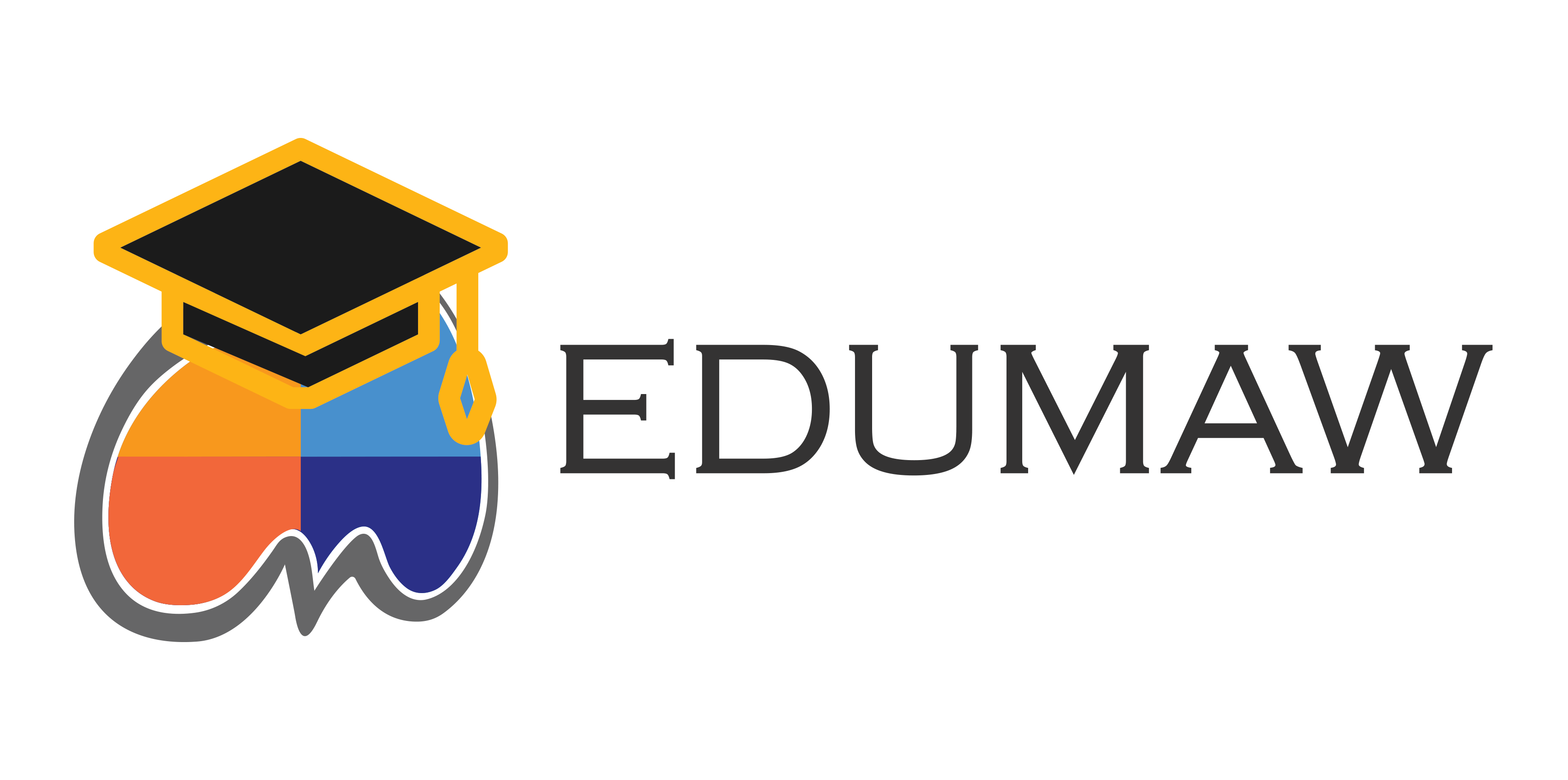
Growth and Transformation with Meditative Brain Training: The Introductory Overview
Meditative Brain Training (MBT) is a system of exercises designed to promote the integration of identity and values, with a foundation rooted in AQAL (All Quadrants, All Levels) and integral perspectives. AQAL (All Quadrants, All Levels) and integral perspective influence means that MBT considers multiple dimensions of human experience and development to provide a holistic approach to personal growth and transformation. Each element of MBT plays a crucial role in facilitating this process of wholeness and growth.
COMMITMENT: Commitment refers to the dedication and intention to engage in the practice of MBT consistently and wholeheartedly. It involves making a conscious decision to prioritize personal growth and allocate time and energy towards the daily practice of MBT. Commitment involves selecting a project or subject to contemplate. This can be a tangible product, a character quality, or a personality trait. Crystalize your engagement through journaling either digitally, in a dedicated notebook, or in a specified recording space. This could include a blog or video blog or podcast.
The emphasis on dedication and intention to engage in the practice of MBT wholeheartedly aligns with the integral perspective of recognizing and prioritizing personal growth and development across various aspects of life, including physical, mental, emotional, and spiritual.
CONSISTENCY: Consistency is the key to reaping the benefits of MBT. It involves establishing a regular practice routine and sticking to it. By engaging in MBT consistently, we create a habit of mindfulness and reflection, allowing for deeper and more sustainable transformations to occur. Extending the work of commitment, consistency adds repetition that is expectant of growth, healing, progress, and prosperity.
Establishing a regular practice routine and sticking to it reflects the recognition of the importance of consistent effort and engagement in personal growth. This aligns with the integral perspective’s acknowledgment of the need for ongoing and sustained practice to facilitate deeper transformations and growth on multiple levels.
QUIET: Quiet signifies creating a quiet and calm environment for MBT practice. By eliminating distractions and finding a peaceful space, we can enhance our focus and internal awareness. This quietness allows us to cultivate a sense of inner stillness and better connect with our thoughts and emotions. The external often mirrors to internal. In addition to cleanliness and order, color, smells, sensations related to temperature, light, and physical tension are considerations of a calm environment.
Creating a quiet and calm environment for MBT practice acknowledges the significance of an inner stillness and focus. This aligns with the integral perspective’s recognition of the importance of cultivating inner awareness and reflection for personal development and transformation.
COGITATION: Cogitation refers to awareness through research—deliberate thinking and reflection during MBT practice. It involves engaging in introspection, asking meaningful questions, and exploring our thoughts and beliefs. Through cogitation, we gain insights into our inner world and foster self-awareness.
Engaging in deliberate thinking, reflection, introspection, and exploring thoughts and beliefs reflects the integral perspective’s emphasis on self-awareness and understanding one’s inner world. By considering multiple perspectives and dimensions, including cognitive, emotional, and spiritual, cogitation aligns with the AQAL approach to comprehensively exploring and integrating various aspects of human experience.
COMPREHENSION: Comprehension involves understanding and making meaning of our experiences during MBT practice. It includes grasping the lessons, insights, and wisdom gained through reflection and contemplation. Comprehension facilitates personal growth and helps us integrate these learnings into our daily lives.
Emphasizing understanding and making meaning of experiences during MBT practice aligns with the integral perspective’s focus on integrating insights, lessons, and wisdom gained through reflection and contemplation. This includes acknowledging and integrating insights from all quadrants (subjective, objective, individual, and collective) to facilitate personal growth and integration.
CONSTRUCTION: Construction refers to actively scaffolding the insights gained through MBT practice into a structure for living that promotes health and well-being as opposed to depression and anxiety. It involves resting on our newfound understanding, aligning our behaviors with our values, and consciously inviting evolutionary personal development. Construction allows for the progressive integration of lessons into our everyday lives. You may have experience or traumatic memories that tell you a certain story, but your thoughts are your own. You reclaim them through scaffolding the story you want to construct. This is the gut-level discernment you cultivate for responses to stimuli and events that align with what you want to be in the world.
Actively applying the insights gained through MBT practice and aligning behaviors with values reflects the integral perspective’s recognition of the need for practical integration of personal development to promote health and well-being. This involves consciously constructing a new narrative and aligning responses to stimuli and events with one’s desired identity and values.
Learn more in the Title available on EduMAW: Brain Train to the Next Level.



